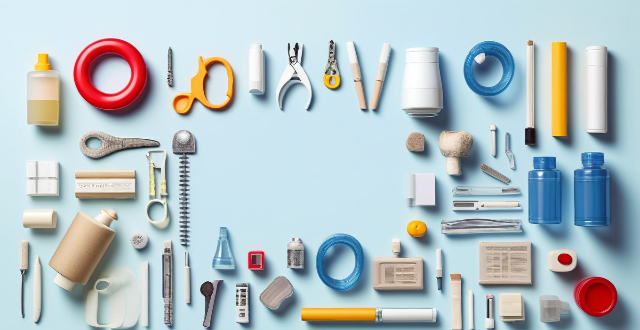This article provides a comprehensive list of essential items to include in a home emergency first aid kit. It covers various categories such as adhesive bandages, gauze and roller bandages, medical tape and safety pins, antiseptics and disinfectants, pain relievers and fever reducers, tools and miscellaneous items, and personal items. The article emphasizes the importance of regularly checking expiration dates and replacing supplies as needed. It also suggests ensuring that all family members are aware of the kit's location and how to use its contents properly.

First Aid Supplies for Your Home Emergency Kit
Having a well-stocked first aid kit in your home is essential for dealing with emergencies and accidents. Here are some of the essential items you should include in your home emergency kit:
1. Adhesive Bandages
- Assorted sizes of band-aids: These are useful for minor cuts, scrapes, and blisters.
- Butterfly closures: For securing larger wounds that need to be held together.
2. Gauze and Roller Bandages
- Sterile gauze pads and rolls: For wrapping wounds or applying pressure to stop bleeding.
- Elastic roller bandages: Useful for securing dressings and providing support for sprains and strains.
3. Medical Tape and Safety Pins
- Surgical tape: To secure bandages and dressings.
- Safety pins: For securing makeshift bandages or clothing.
4. Antiseptics and Disinfectants
- Alcohol wipes or rubbing alcohol: For cleaning wounds and disinfecting skin before applying bandages.
- Antiseptic solution or spray: To prevent infection in cuts and abrasions.
5. Pain Relievers and Fever Reducers
- Acetaminophen or ibuprofen: Over-the-counter medications can help manage pain and reduce fever.
6. Tools and Miscellaneous Items
- Scissors: For cutting bandages and other medical supplies.
- Tweezers: For removing splinters or other foreign objects.
- Thermometer: To monitor body temperature.
- Cold pack: For reducing swelling and relieving pain from injuries.
- Hot pack: For soothing sore muscles and alleviating cramps.
7. Personal Items
- Prescription medications: Keep an extra supply of any prescription medications you or your family members use regularly.
- Contact lenses supplies: If you wear contacts, have an extra pair and solution available.
- Hearing aid batteries: If you rely on hearing aids, keep spare batteries on hand.
Remember to check the expiration dates on all medications and supplies regularly, and replace them as needed. It's also important to ensure that all family members know where the first aid kit is located and how to use its contents properly.